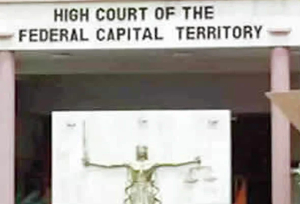Accra, May 25, GNA - The Global African Civil Society Organisations (GACSO) on Friday urged the African Union to adopt the "ECOWAS model of free movement of people and goods" within the continent, to reduce the negative impact of existing artificial boundaries in Africa.
"Africa needs to establish structures that would encourage direct investment in Africa and cross-border investments to promote cross-border economic transactions and cooperation," GACSO stated in a statement to the Ghana News Agency on the 44th African Union (AU) Day commemoration in Accra.
The AU replaces the erstwhile Organization of African Unity (OAU), instituted in 1963 and the Day commemorates the legitimate aspirations of the peoples of Africa and affords member states the opportunity to reaffirm their commitment to the objectives and ideals of the AU. The GACSO, a non-political pressure movement used the occasion of the anniversary to also enjoin African governments to issue citizenship to any person of African descent who expresses interest in acquiring such citizenship with minimal restriction.
The movement challenge African political leaders and other stakeholders to encourage the development and use of community orientated education programmes to continuously educate Africans on their common history, struggle and aspirations. In light of this, GACSO called on AU to adopt global African mechanism for proper coordination of various African actions against racism, racial discrimination, xenophobia and related intolerances. It therefore denounced and demanded the repudiation of the World Trade Organisation's (WTO) "compassionate slavery" doctrine and resist the implementation of this doctrine in any way.
To strengthen the Africa Union-Diaspora synergy and initiative for implementing the programme of Action of the World Conference, Against Racism, Racial Discriminations, Xenophobia and related Intolerances, GACSO called for reactivation and transformation of the OAU Commission on Reparation into AU Commission in order to follow-up on the 1993 Abuja Declaration on Reparation and Repatriation. GACSO also called on civil society to re-energise the Global African Movement for Forgiveness, Reconciliation and Reparations for all forms of slavery by past and present actors from the West and Arab land, and for colonialism.
Sensitise all Africans to the dangers of xenophobia and related intolerances to free movement of persons in Africa, Strengthen the African Union-Diaspora initiative for implementing the Programme of Action of the UN Convention on Racism and other issues. Work towards focusing the deliberations of the Review Conference of the "Declaration and Programme of Action of the World Conference Against Racism, Racial Discrimination, Xenophobia and Related Intolerances" on discriminations suffered by and perpetuated against people of Africa decent, indigenous peoples and minorities.
GACSO identified the urgent need to organise preparatory meetings in different African regions to properly produce and articulate African positions the review conference in 2009. "We have to work toward converting the Declaration and Programme of Action of the Durban conference into a legally binding convention within the nearest possible time.
"We urge all African governments to urgently establish national research committees on racism, racial discriminations, xenophobia and related intolerance as provided in the Declaration and Programme of Action," the statement added.
The statement called on the national committees to work towards providing Afro centric solutions to the problems based on studies and consultations.
GACSO explained that participants at a recent PanAfrican Global Roundtable on Durban Plus 5, held in Addis Ababa and Accra, acknowledged that since 2001, there appears to be shortage of energy and scarcity of goodwill on the part of the actors especially the states, the intergovernmental organisations and national institutions towards implementation of the declaration. The Addis Ababa and Accra meetings provided a platform for appraisal of the collective concerns in health, human rights and governance, education, technology, economic development and other issues. It noted that before 2001, Africans and Peoples of African Diaspora have through a Reparation Conference held in Nigeria in 1990 and 1993 agreed on the Declaration, which caused the OAU to establish an OAU Commission on Reparations.
Unfortunately according to GACSO, the Commission was short-lived but stressed that with the transformation of OAU into African Union (AU), another window of opportunity was reopened when AU created six regions with five in continental A frica while the 6th Region brings together the Diaspora global Africans. It therefore called for new civil society activism across the continent to force African governments to ensure the implementation of conventions and declarations they append their signatures to. 25 May 07
General News of Friday, 25 May 2007
Source: GNA












